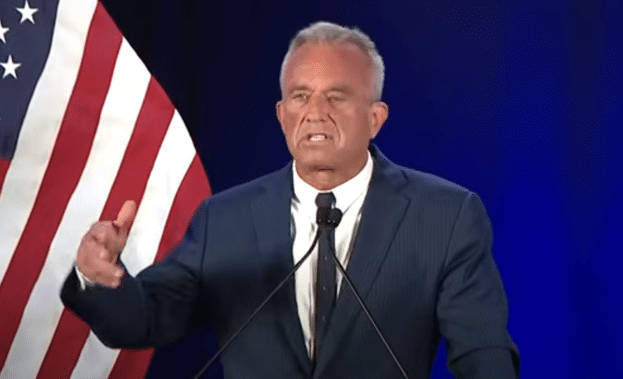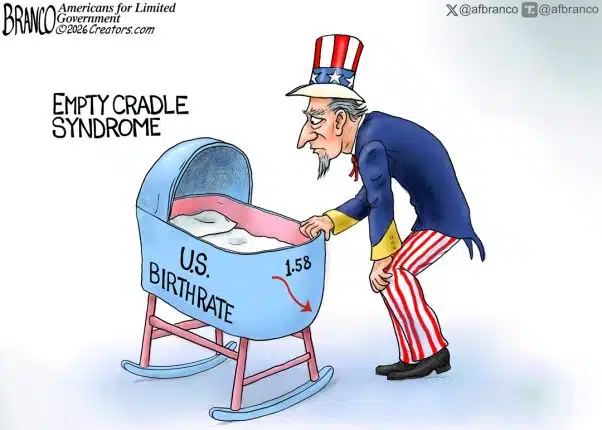
Former presidential candidate Robert Kennedy, Jr. will remain on the ballot in Michigan, says the state’s supreme court, despite the candidate withdrawing from the race and petitioning to be removed.
It’s an irony in many ways. When President Joe Biden was still the Democratic Party’s candidate earlier in the year, state Democratic Parties were fighting to keep him off the ballot in light of numerous polls showing he pulled just as many or more votes from Biden as former President Donald Trump.
But after Biden withdrew from the race and Vice President Kamala Harris became the nominee, Democrats re-consolidated their base of support, and it looked like Kennedy might pull more support from Trump. Rather than help Democrats win, Kennedy withdrew from the race and threw his support and endorsement behind Trump, fully joining the campaign.
One of the major reasons, particularly for the emphasis of Democrats to keep Kennedy on the ballot in Michigan is because he had a very significant stream of support there. In the Aug. 23 to Aug. 29 CNN-SSRS poll of swing states, in Michigan, Kennedy garnered 4 percent of the vote, compared to Harris’ 48 percent and Trump’s 43 percent.
In short, with Kennedy out of the race and backing Trump, if the former president and Kennedy were successful at persuading Kennedy’s supporters to go with Trump, the race in Michigan suddenly becomes very close. So, in Democrats’ rationale, keeping Kennedy on the ballot — even though he’s not running — could still have an impact on the race when Michiganders get in the voting booth, maybe enough to help Harris win.
Looking at the crosstabs in the CNN swing state polls, one cross swath Kennedy polled significantly among were white voters with no college degree, garnering 5 percent. For Trump, white, no college degree voters are his bread and butter in terms of garnering votes. And the cultural and economic divide between college graduates and the rest of the country is a widening chasm of opportunity, with college graduates historically tending to have lower unemployment rates and higher incomes.
In 2020, Trump won white, no college degree 67 percent to 32 percent nationally in 2020. In Georgia it was 79 to 29. In Arizona it was 57 to 41. In Nevada it was 60 to 39. In Pennsylvania it was 66 to 34. In Michigan it was 60 to 39. And in Wisconsin it was 57 to 41.
And in CNN’s most recent poll, again, there are big third-party swaths including Kennedy in Michigan, Trump leads 53 percent to 36 percent among white, no college degree voters, with Kennedy garnering 5 percent.
Now Trump leads that group in Arizona by 65 percent to 31 percent, in Georgia 71 percent to 27 percent, in Nevada 64 percent to 31 percent, in Pennsylvania 63 percent to 31 percent and in Wisconsin 54 percent to 41 percent.
So, in the swing states, Trump is well above his 2020 levels among white, no college degree in Arizona and Nevada, but the other states are relatively the same except Georgia, where Trump is down slightly. If just you assume the undecided and Kennedy swaths breaks evenly in Michigan, then Trump is well above where he was in 2020. That puts Michigan in play.
Looking at college graduates, in 2020, in Arizona, it was 53 percent to 46 percent for Biden among white college graduates. Now it’s 47 to 47. In Nevada, in 2020, it was 49 percent to 48 percent, but here Harris improves, to 56 percent to 41 percent. In Pennsylvania, it was 54 percent to 45 percent, now it’s 59 percent to 37 percent. In Michigan it was 53 percent to 46 percent, now it’s 52 percent to 41 percent. In Georgia, Trump actually won white college degree in 2020 55 percent to 44 percent, and now he leads 65 percent to 32 percent. And in Wisconsin, Biden led white college degree 56 percent to 43 percent, and now it’s 62 percent to 31 percent.
Those numbers might put Georgia and Arizona out of reach for Harris, and they also appear to have Nevada, Michigan and Pennsylvania in play. Wisconsin looks tougher for Trump and Republicans this year. We’ll see. It seems very close, and with Kennedy off the ballot and his supporters by and large coalescing under Trump’s growing tent, the race for 2024 could come down to the wire. Stay tuned.
Robert Romano is the Vice President of Public Policy at Americans for Limited Government Foundation.






